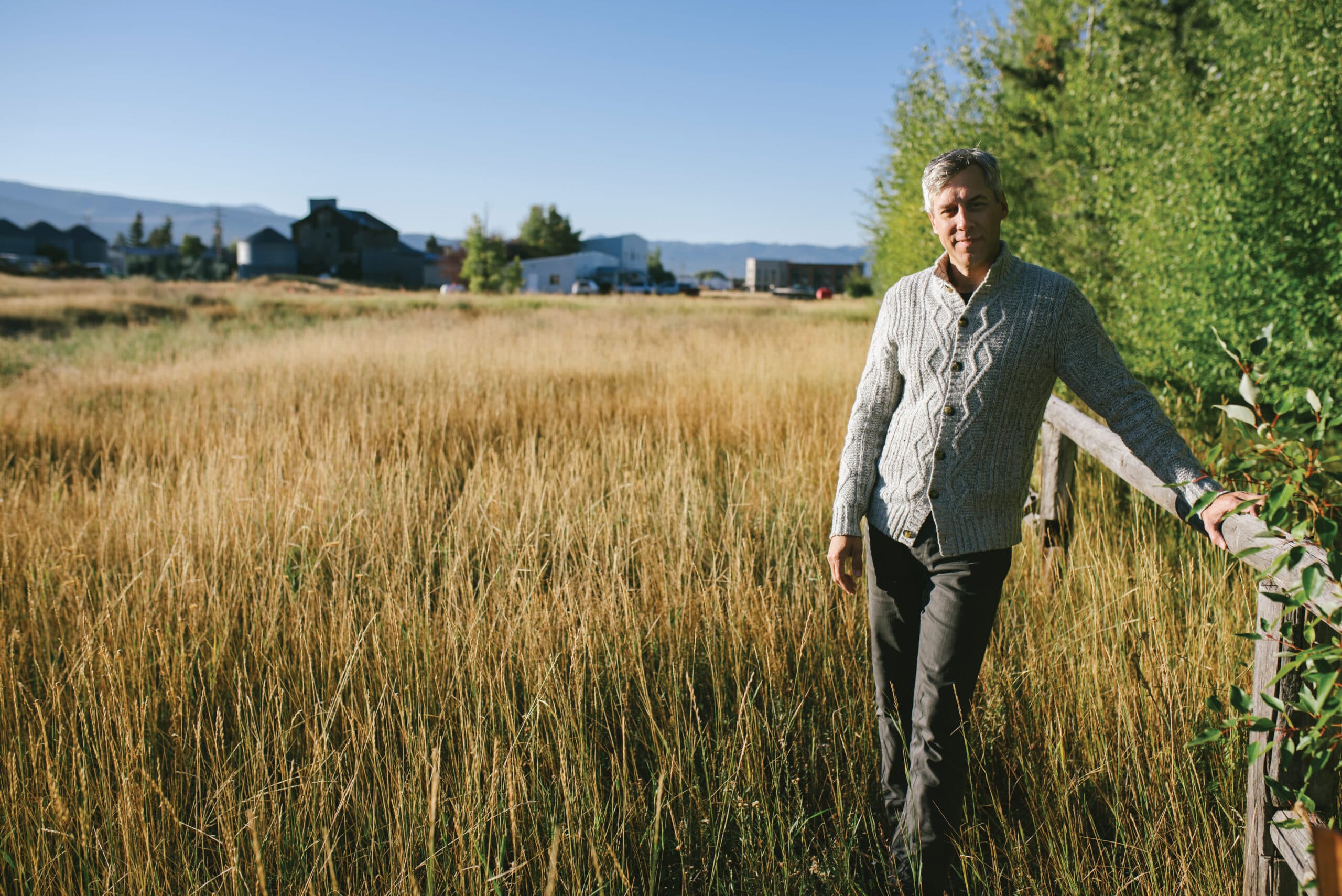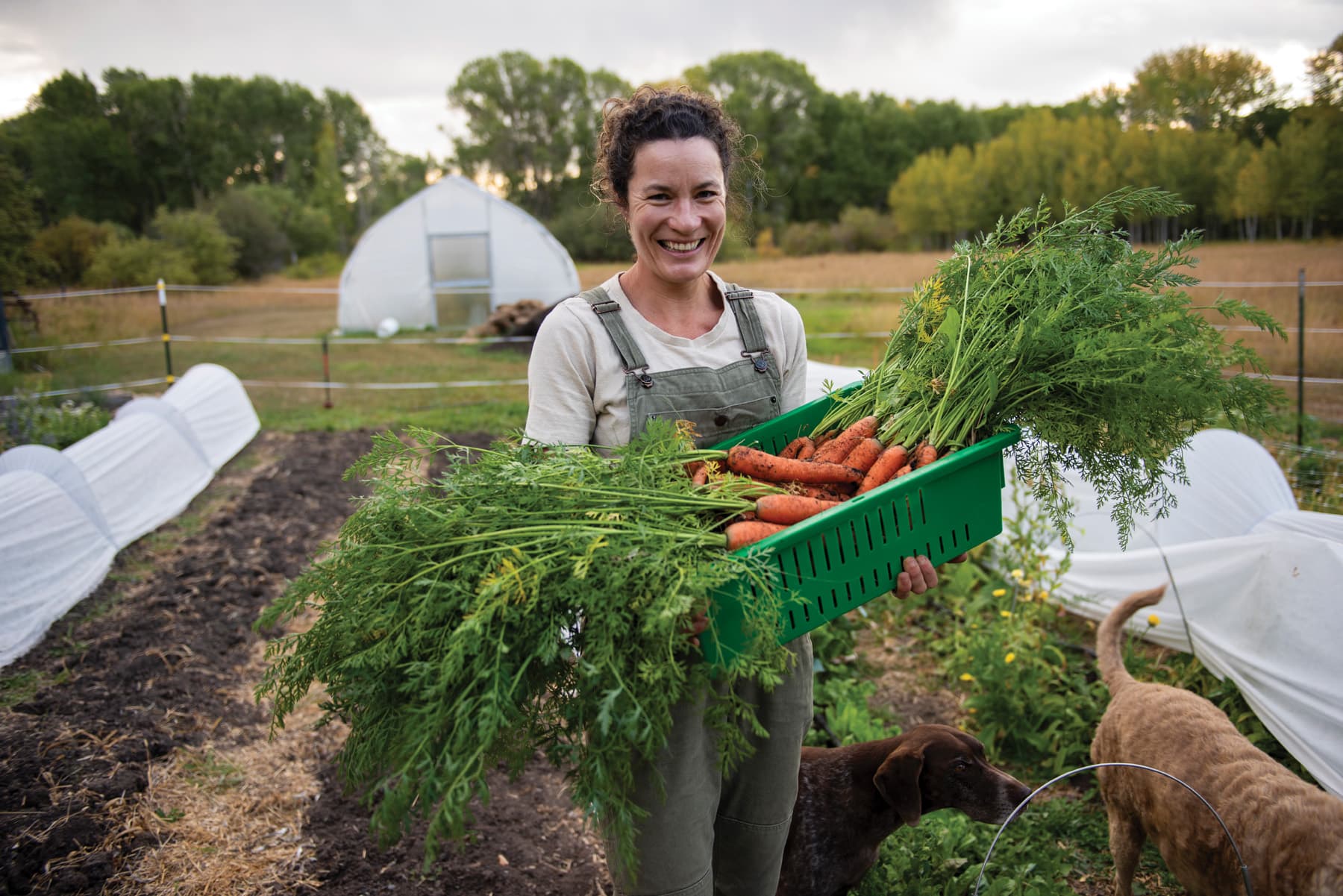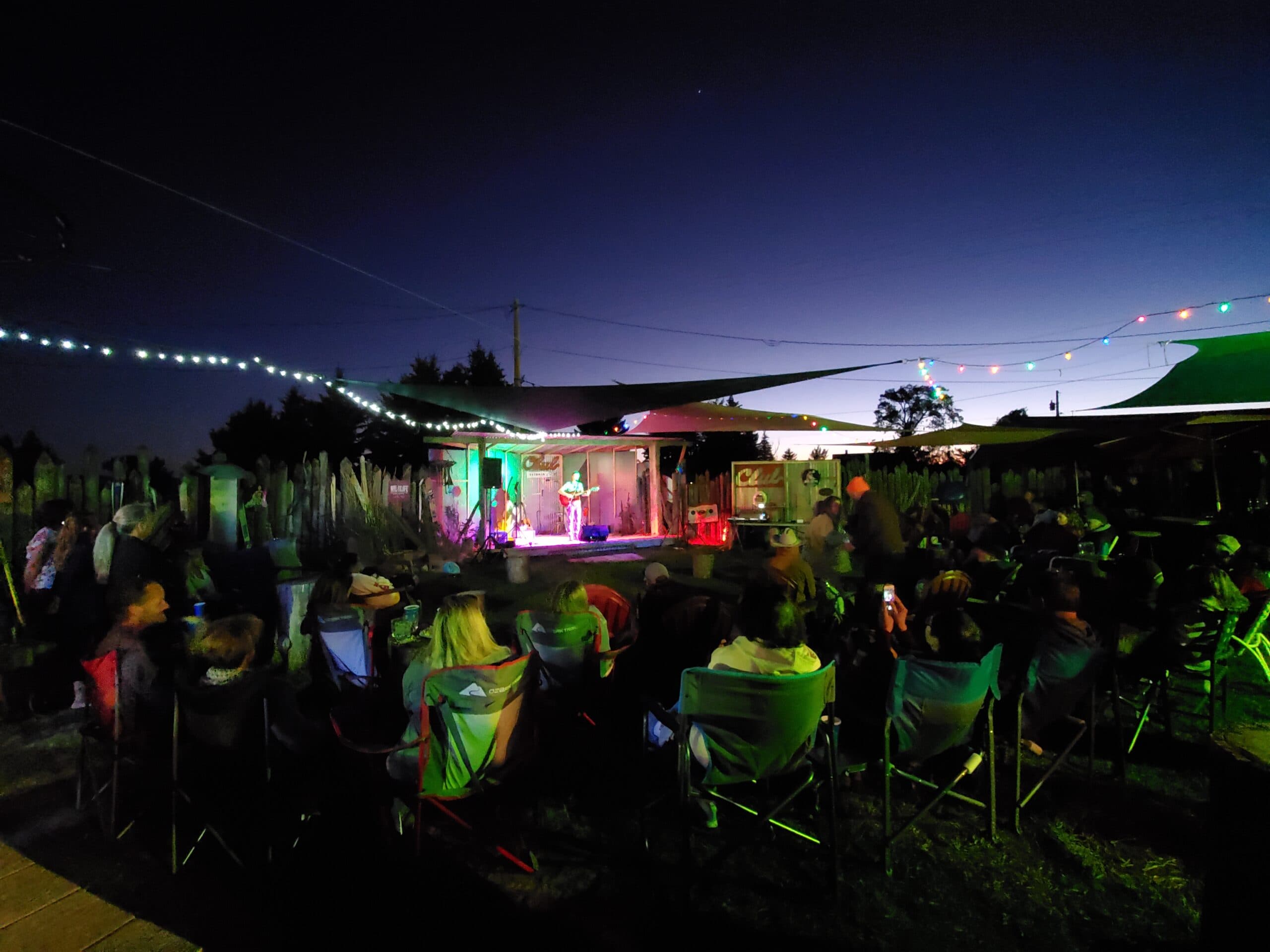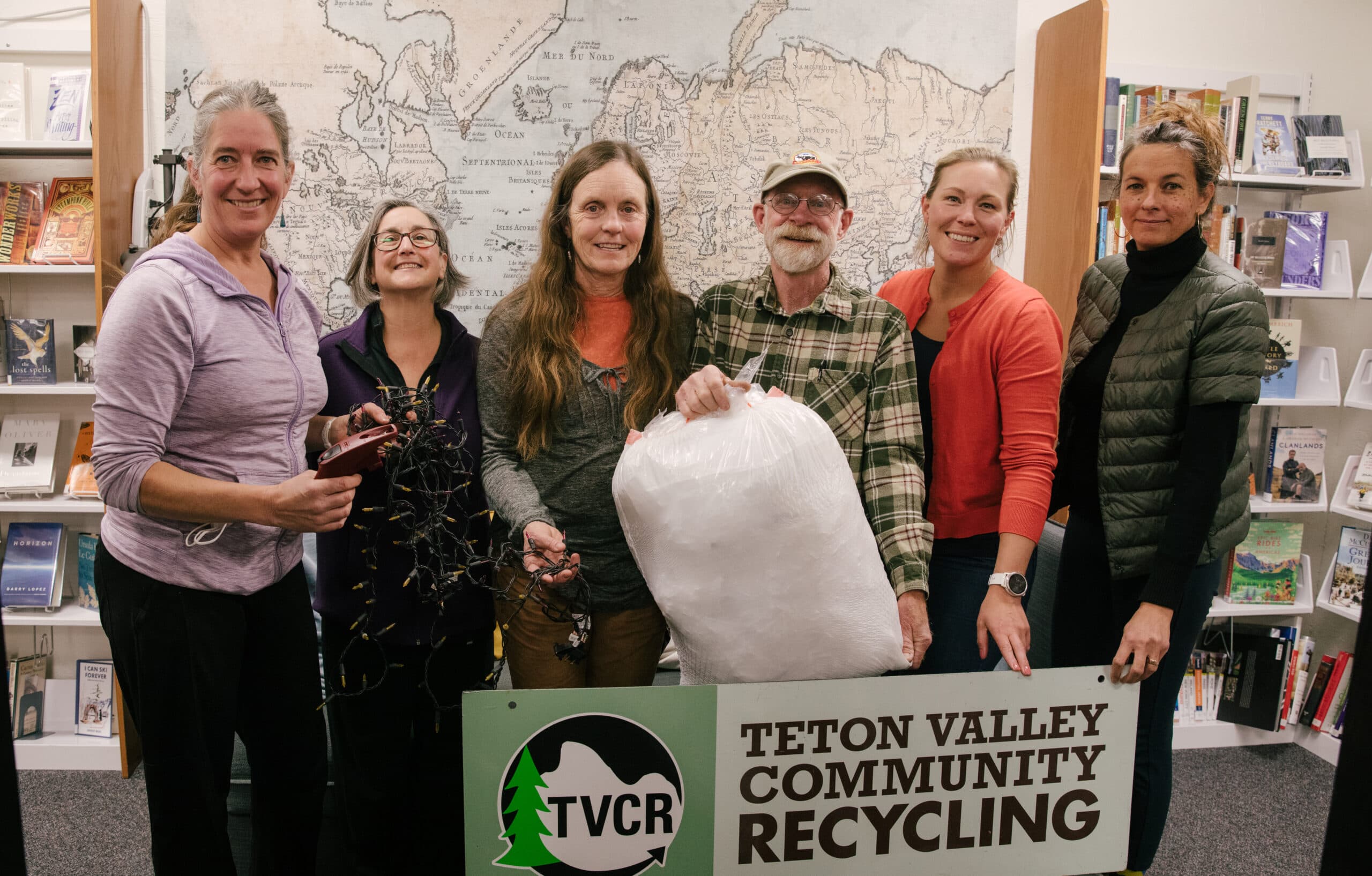Teton Valley Pride Alliance

Skiers and snowboarders graced the slopes of Grand Targhee Resort with pride flags flying and rainbow accessories joyously displayed in a celebration of Pride Ski Day last March.
The ski day was just one of many events Teton Valley Pride Alliance (TVPA) has organized to celebrate and bring together the valley’s LGBTQIA+ community and allies, as well as provide valuable educational opportunities for the entire community. (The acronym LGBTQIA+ stands for lesbian, gay, bisexual, transgender, queer, questioning, intersex, and asexual, while the “+” holds space for future expansion, according to Princeton University’s Gender + Sexuality Resource Center.)
Madison Kwasny, the director of TVPA, moved to Teton Valley in 2022 after five years living in Jackson. When they arrived, Madison felt inspired to create an organization to bring people together, so two years ago they founded TVPA and the momentum has grown strong.
“The biggest thing that I noticed is sort of a lack of queer community within this community,” Madison says. “There [hadn’t] really been any sort of gathering force or gathering space or way for them to connect. That is one of the biggest things that I learned that I find most important: to create that community within our larger community.”
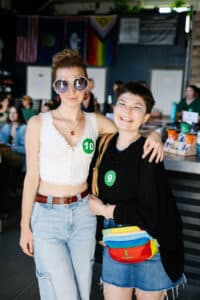
TVPA hosts a wide variety of events, from Pride celebrations—like the ski day and two-day Pride Fest this past June, both held at Grand Targhee Resort—to community-building get-togethers like coffee hours and climb nights. The group also works to help the local community learn, offering educational workshops about sex education, healthy relationships, and supporting your queer child, among other offerings.
“Some queer people don’t feel safe in their gender expression or in the expression of their sexuality, and oftentimes feel the need to be either closeted to certain people or closeted completely,” Madison says. “It is pretty rare to find spaces where you feel like you can be 100 percent authentically yourself, and that is one of the really exciting things about Pride and Pride events.”
Madison says TVPA is important on many levels, including representation, celebration, education, and building a support network.
“It can feel really lonely and isolating being queer sometimes, especially in places as rural as where we live. But having an organization like TVPA provides that support network of, ‘Hey, there are other queer folks here and look at all these wonderful things that you can do, look at these ways you can learn and celebrate and be a part of the community,’” Madison says. “And I think at least the goal was that it makes people feel a little less lonely.”
The Trevor Project, which focuses on suicide prevention among LGBTQIA+ youth, estimates that every 45 seconds, a LGBTQIA+ young person aged 13 to 24 attempts suicide. Research shows that LGBTQIA+ youth are four times as likely as their peers to attempt suicide.
The Mental Health Coalition of Teton Valley serves as TVPA’s fiscal sponsor, providing resources and guiding the group through the world of nonprofits, while allowing them to operate under their nonprofit umbrella until the Alliance is able to establish its own 501(c)(3) status. Sara McKeown White, executive director of the coalition, says discrimination, harassment, and harm—including things like misgendering and using incorrect pronouns, making people feel unsafe, and physical harm—has a huge impact on mental health.
“One of the reasons why we felt like we would be a good match for them as a fiscal sponsor is because we recognize that [among] many people who identify as LGBTQIA+, there’s a high rate of mental health and suicide risk with that population because of how they are treated by other folks,” Sara says. “Being able to partner with TVPA to provide a safe space for those folks, to have community, to have connection, to have education, for the Pride Alliance to do advocacy work, feels so hand-in-hand with our mission.”
Madison receives lots of questions from people who are not LGBTQIA+ themselves but have friends and loved ones who are and who want to show their support as allies. Madison encourages people to read up about gender and sexuality, including books with queer representation and by queer authors. Allies can also make sure to ask a person’s pronouns and use them, attend events that are open to allies, and speak up against discrimination and mistreatment when it can be done safely.
“People feel the word ‘ally’ must be this big, all-encompassing thing and you feel like you have to be an ally in every way possible, but not everyone can be an ally in every way,” Madison says.
They encourage people to be an ally by showing up to events, volunteering, donating to organizations that support the queer community, and standing up and saying something when witnessing discrimination (if it can be done safely), along with advocacy work and “whatever it is that you feel is right for you as an ally,” Madison says. “You don’t have to be
everything all at once.”



